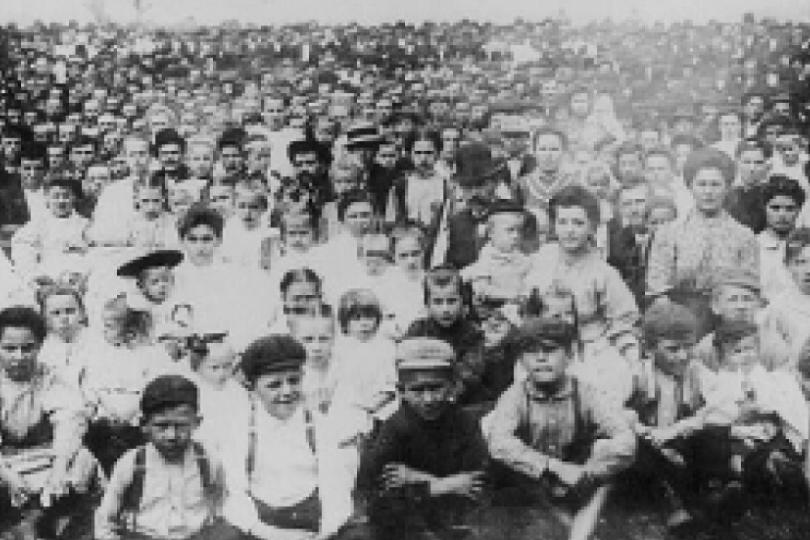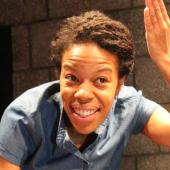The Status Quo
Editorial

While in grad school I took a workshop from a rather prominent playwright, whose basic premise about creating theater was that you either created something that supported the status quo or you created something that challenged it. I, for the most part, agreed with this premise, and, for the most part, still do. But perhaps what is up for debate is what constitutes the status quo and, as an artist, what it means to challenge it. For me, that’s what political theater is all about.
For that workshop playwright, the status quo was a white, upper middle class, privileged perspective and plays should challenge that perspective at all costs. This perspective, however, admittedly, also makes up the bulk of the theater-going audience. So that playwright’s conclusion was to write plays that challenged that audience. There is nothing wrong with that. But this conclusion was not to challenge the fact that other types of theater audiences could or do exist. And perhaps plays should be written for audiences other than the one that is “most likely” to attend. Perhaps we fail in our challenge of the status quo, when we ultimately fail to create theater that speaks to audiences outside of the “most likely.”
That workshop created a sort of awakening for me because as much as that playwright wanted to challenge this view of the status quo, I realized quite quickly that he was decidedly embedded in it. The theater he created challenged an audience that he belonged to. And then I realized I did not belong and that most theater I studied, attended and perhaps even created did not speak to my experience or background at all. I wasn’t even sure if there was a place in the theater for me. This was a belated awakening and I’m still on that journey. I’m still trying to express it and find a place for it. But perhaps as artists we all are on that journey in one way or another.
At first this awakening made me angry and I certainly didn’t trust this particular playwright, especially when, after discovering my background, he was kind of…excited by it, but in an exploitive way, not in a respectful way. It made me uncomfortable, even as it made me glad or even relieved to have it acknowledged.
I grew up about as far away from any theatrical epicenter as you could possibly get. I grew up, literally, in the middle of nowhere, and the fact that I not only learned how to create theater but actually continue to do it professionally is not only somewhat of a miracle but also somewhat difficult to explain. Sometimes I wonder how I got here.
My family’s background is somewhere between white trash and stoically blue collar. It is also solidly rural and solidly mid-western. My grandmother had an eighth grade education; my grandfather left school at fourteen to work to support his family. My parents both faired better, each graduated from high school, although neither has any college education. My father worked in a paper mill most of his life and my mother was a bookkeeper. I have twenty-six first cousins. One of them, along with my two sisters, has an under-graduate degree, a handful have some collage, a professional certificate or an AA degree. The others all work in the service industry. I am the only one with an advanced degree. I did not grow up poor, exactly, just one-pay check away from falling below the line and after my parent’s divorce my teenage years were definitely spent a little closer to poor.
I only write about my background to make a point—most theater does not address issues of class in a meaningful way. I believe this is true mostly for two reasons. One, most theater is created by artists who come from more privileged backgrounds, and two, and most importantly, we don’t like to talk about it.
It’s reasonable to assume most theater artists come from higher-class backgrounds. I know this could open Pandora’s box, so, please don’t think I mean all, I don’t. But knowing my own path to a life in the theater, I also know that most lower class individuals just don’t have the resources to become theater artists in the first place. It is, as much as we don’t like to admit it, an elitist art form. I believe the issue of who is creating the theater makes it that way. I know there are exceptions, even many, but I also believe that more often than not we would categorize those exceptions as political theater. They challenge the status quo.
In the American theater, as in our country, we do not like to talk about class, we do not like to address it, we do not like to acknowledge how it permeates our culture, our economics, our politics, our lives. We do not talk about class the way we talk about race or gender, both of which need also to be talked about, but class underlies those discussions, even if we don’t like to address it. We make judgments about class whether we realize it or not. It may not be as obvious as the judgments we make about race or gender, but we make them. These judgments are reflected in the theater we make and the audiences that attend it. That is a status quo I would like to see more theater challenge. And perhaps if it did, we would expand the audience of “most likely.”




